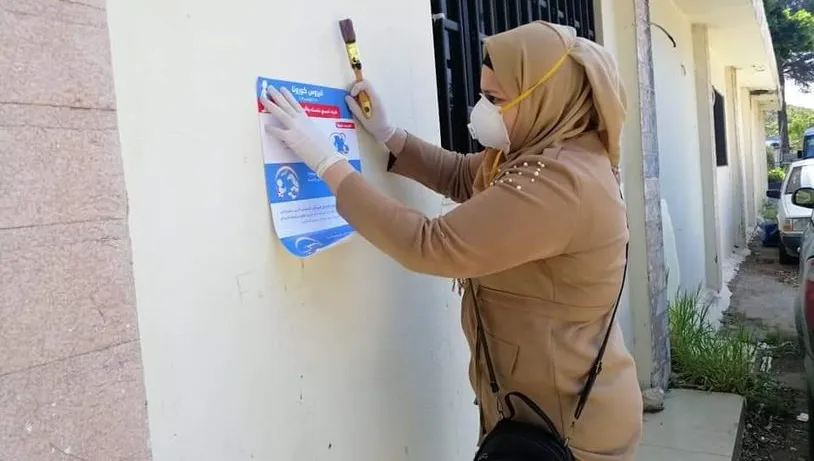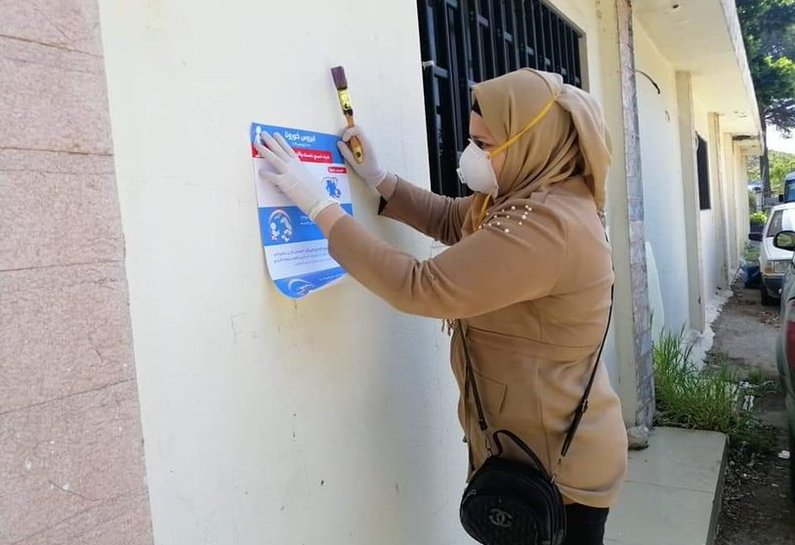“People say if they don’t die from the disease, they’ll soon die from hunger”
30 April 2020


Overcrowded, unsanitary conditions in the 12 official Palestinians camps and other refugee gatherings make effective self-isolation and other containment measures extremely difficult. With malnutrition on the rise, particularly among young children and pregnant or breastfeeding women, poorly controlled non-communicable diseases, high smoking rates and a lack of nursing care for the elderly, many Palestinians are also particularly vulnerable to infectious diseases.
Alongside partners, MAP is working hard to prevent the further spread of COVID-19 which could spell disaster for those living in the camps.
Our team in Lebanon spoke to Hanan, Coordinator for the MAP-supported Mental Health and Psychosocial Support project for our partner organisation Solidarity Association, about the current conditions in the camps and how her work has been impacted.
Hi Hanan, please can tell us about the situation in Palestinian camps since the outbreak of coronavirus in Lebanon?
The situation in the camps is tragic for many reasons. People are very worried of a coronavirus outbreak. Without a doubt, the disease would spread very fast due to over-crowding and the proximity of houses to one another. People are also concerned that they might not have quick access to the medical care if they need it.
Lebanon’s financial crisis in the country has had a very bad impact on refugees. Many lost their while at the same time the price of many goods has almost doubled. People are no longer able to buy the essential things they need. Most Palestinian refugees are daily labourers, meaning that on any day they don’t work, they don’t get paid.
The coronavirus outbreak in Lebanon made things worse as it forced many families to stay home. Many are now struggling; children might not eat on the day that their father can’t work. Thus, despite all the warnings, you find shop owners, vendors, and others insisting to work. The security forces tell them to close and go home, but people say if they don’t die from the disease, they’ll soon die from hunger. It is not right to tell people to stay home and not work without providing them with any source of alternative income or any aid to help them survive.
What has the impact been on your centre’s work?
Our regular activities at the centre were stopped, and we shifted to emergency response plans. We are now raising awareness about COVID-19 and providing information to people about precautionary measures after receiving training from UNICEF on the topic. We are distributing brochures for families in the camps on preventing disease and using WhatsApp, Facebook, videos, livestreams, and online competitions.
Do you think the need for the psychosocial support has increased?
Mental health and psychosocial support is very important at the moment for all people in the camps and in the country in general. All people are going through difficult times as a result of the financial situation and COVID-19 outbreak.
We are doing our best to provide psychosocial support and communicate with our beneficiaries though digital and electronic methods to avoid any risk of disease transmission through group activities.
What are the priority unmet needs for Palestinians in the camps?
Food items, as well as hygiene and protective items - mainly hand sanitizer, detergents, gloves, and masks. Many suppliers are taking advantage of the crises and raising the prices of these items.
Thanks for talking to us Hanan, and for all of your work.
In Lebanon MAP is prioritising infection prevention and control in response to coronavirus. We are distributing vital antiseptics and disinfectants such as chlorhexidine, ethyl alcohol, glutaraldehyde and povidone iodine in the Palestinian refugee camps and procuring protective equipment for health workers.